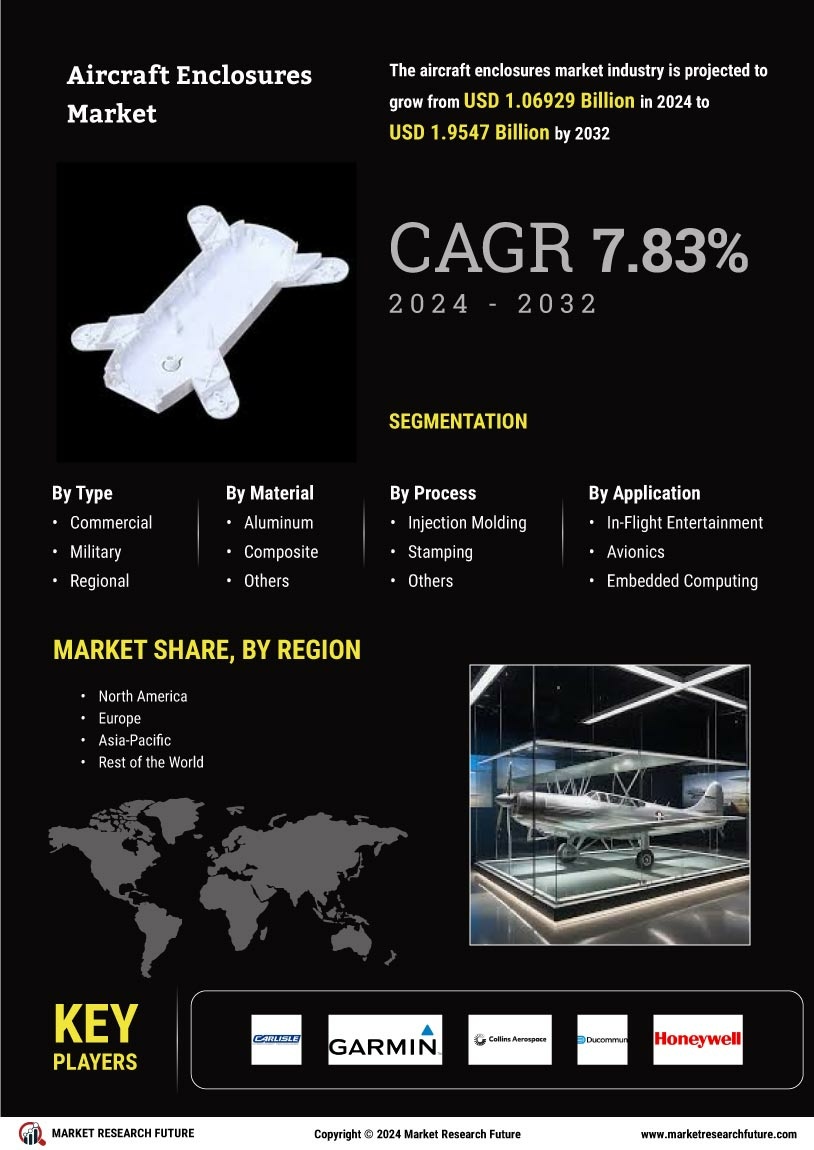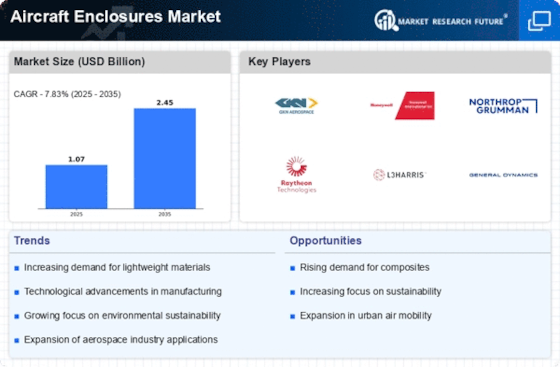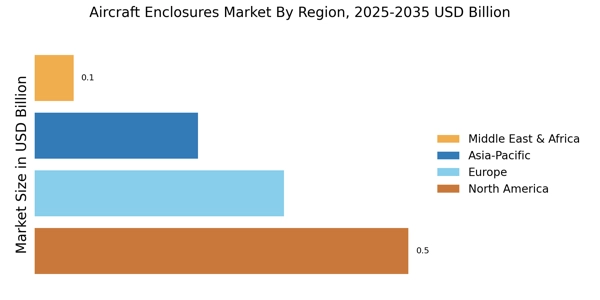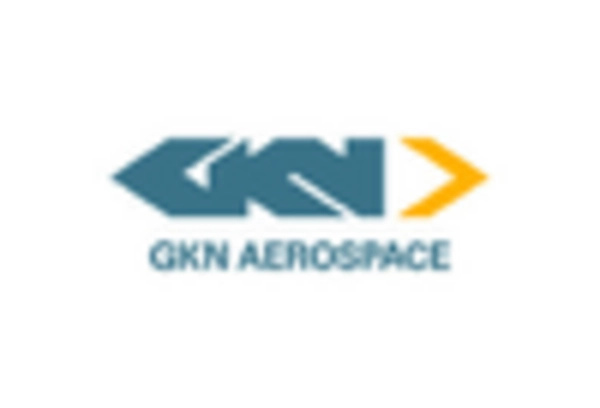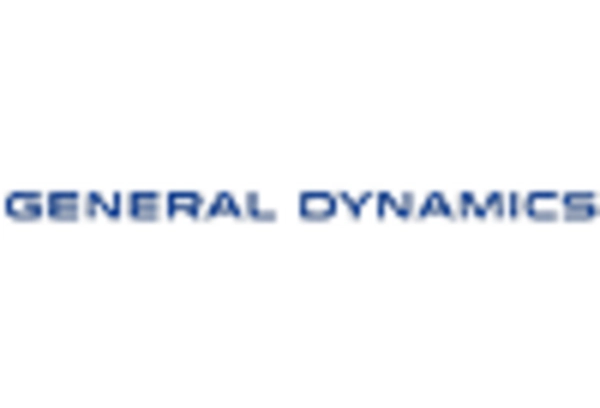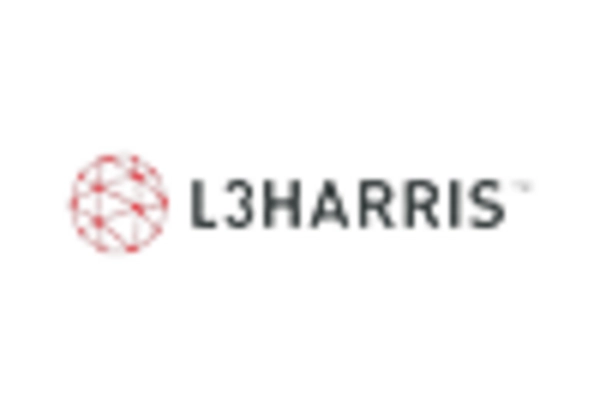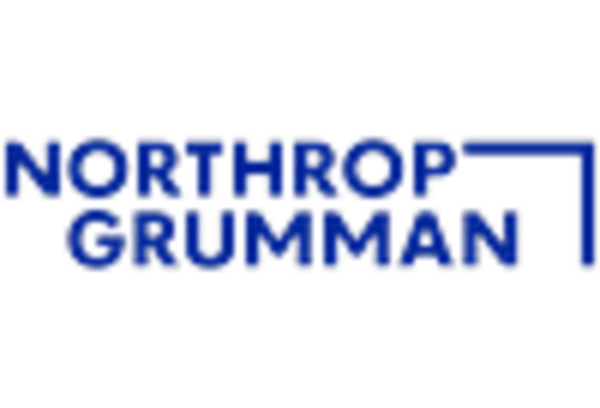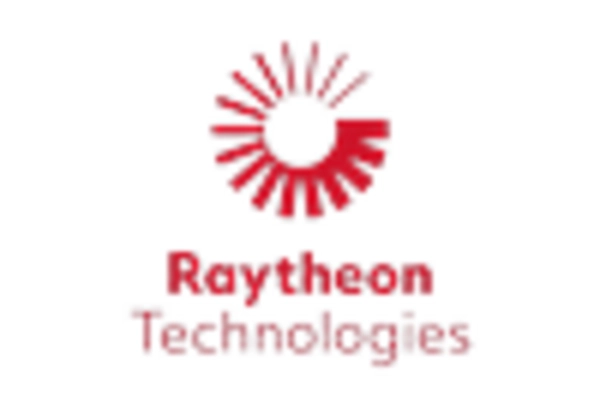Rising Focus on Safety and Security
Safety and security concerns are paramount in the aviation sector, significantly influencing the Aircraft Enclosures Market. With increasing regulations and standards imposed by aviation authorities, there is a heightened emphasis on ensuring that aircraft enclosures meet stringent safety criteria. This focus is underscored by the fact that the aviation safety market is projected to grow at a CAGR of 5.5% through 2025. As a result, manufacturers are compelled to innovate and enhance the safety features of their enclosures, thereby driving demand. The integration of advanced materials and technologies into aircraft enclosures is likely to play a crucial role in addressing these safety challenges.
Technological Advancements in Aerospace
Technological advancements are reshaping the Aircraft Enclosures Market, as innovations in materials and manufacturing processes lead to the development of more efficient and durable enclosures. The introduction of composite materials, for instance, has revolutionized the design and functionality of aircraft enclosures, offering weight reduction and improved performance. The aerospace industry is projected to invest over USD 20 billion in research and development by 2025, indicating a strong commitment to innovation. This investment is expected to yield new technologies that enhance the capabilities of aircraft enclosures, making them more adaptable to various operational requirements.
Growth of Unmanned Aerial Vehicles (UAVs)
The proliferation of unmanned aerial vehicles (UAVs) is emerging as a significant driver for the Aircraft Enclosures Market. As UAV applications expand across sectors such as agriculture, surveillance, and logistics, the demand for specialized enclosures tailored to these platforms is likely to increase. The UAV market is anticipated to grow at a CAGR of 15% through 2025, creating opportunities for enclosure manufacturers to develop lightweight and robust solutions. This growth not only reflects the rising adoption of UAVs but also highlights the need for enclosures that can withstand diverse environmental conditions while ensuring optimal performance.
Increasing Demand for Aircraft Modernization
The Aircraft Enclosures Market is experiencing a notable surge in demand driven by the modernization of existing aircraft fleets. Airlines and military operators are increasingly investing in upgrading their aircraft to enhance performance, safety, and efficiency. This trend is reflected in the projected growth of the aircraft modernization market, which is expected to reach USD 100 billion by 2026. As part of these modernization efforts, the need for advanced enclosures that can accommodate new technologies and systems becomes paramount. Consequently, manufacturers of aircraft enclosures are likely to benefit from this trend, as they provide solutions that meet the evolving requirements of modern aircraft.
Regulatory Compliance and Environmental Standards
The Aircraft Enclosures Market is increasingly influenced by regulatory compliance and environmental standards. Governments and regulatory bodies are implementing stricter guidelines aimed at reducing the environmental impact of aviation. This has led to a growing demand for enclosures that are not only efficient but also environmentally friendly. The market for eco-friendly aircraft components is projected to reach USD 30 billion by 2027. Manufacturers are thus incentivized to innovate and produce enclosures that align with these sustainability goals, potentially leading to a shift in material selection and design practices within the industry.
